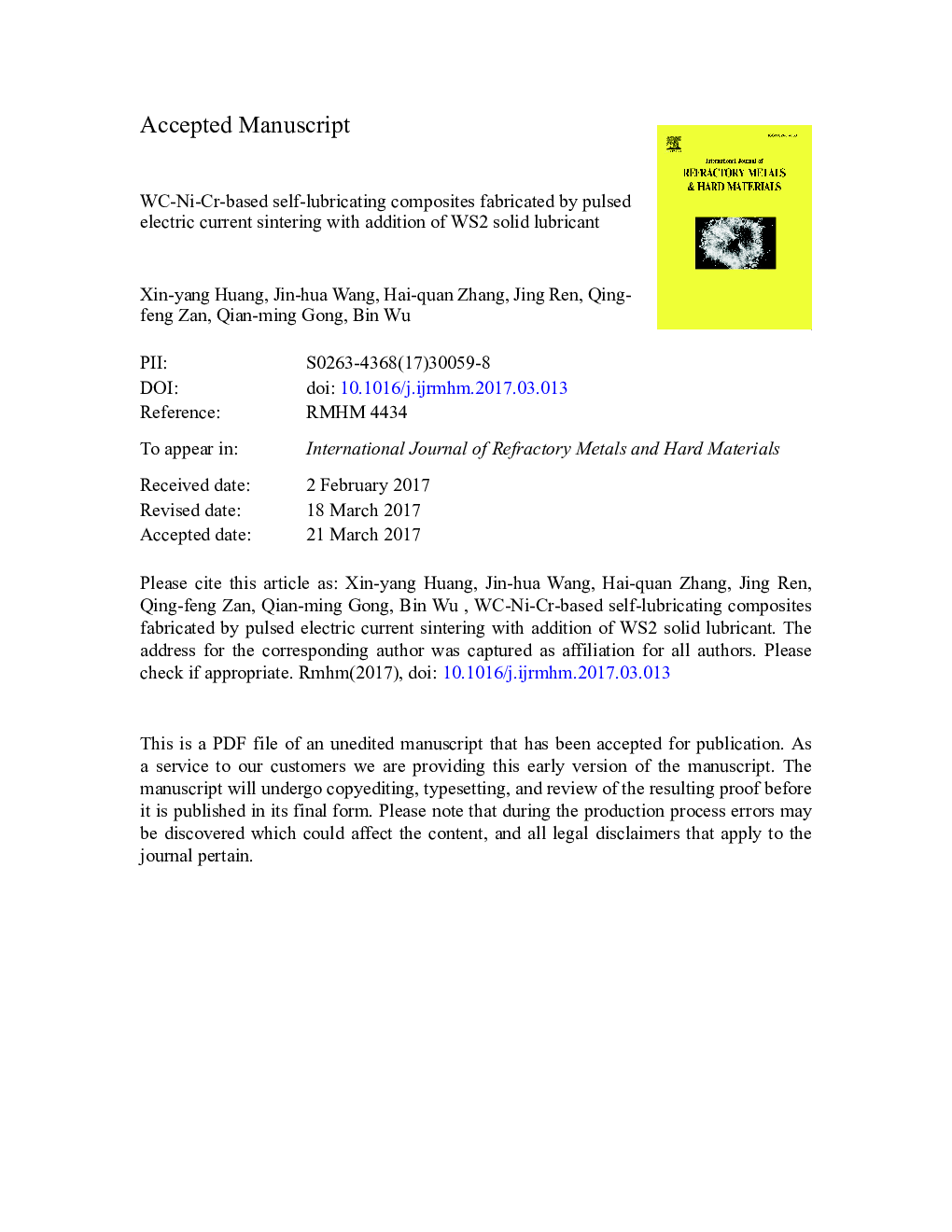| Article ID | Journal | Published Year | Pages | File Type |
|---|---|---|---|---|
| 5457776 | International Journal of Refractory Metals and Hard Materials | 2017 | 11 Pages |
Abstract
Self-lubricated WC-Ni-Cr-based composites with WS2 were fabricated by pulsed electric current sintering at different temperatures and pressures. The density and hardness of the composites were investigated, and the densification effects of sintering temperature and pressure were discussed. The applied pressure over 250 MPa along with a sintering temperature as low as 950 °C could densify the sintered composite while protecting the disulfide from decomposition. The tribological properties of the composites were also tested under sliding wear conditions in air. The composite with WS2 sintered under high pressure could provide a lower friction coefficient than WC-Ni-Cr cermet without the addition of WS2. The test results are discussed together with the morphology of the polished surfaces and wear tracks. The presence of WS2 and sulfur element in the composites was analyzed with the help of scanning electron microscopy, Raman spectroscopy and energy-dispersive X-ray spectroscopy. WS2 in the composite appears to be transferred to the contact area with other wear debris during sliding and reduces the friction coefficient.
Related Topics
Physical Sciences and Engineering
Materials Science
Metals and Alloys
Authors
Xin-yang Huang, Jin-hua Wang, Hai-quan Zhang, Jing Ren, Qing-feng Zan, Qian-ming Gong, Bin Wu,
